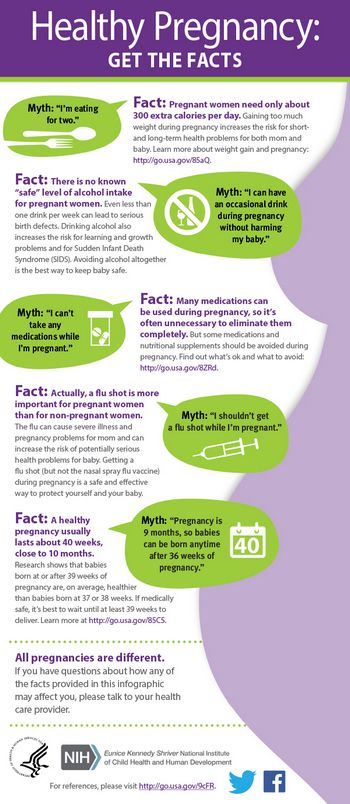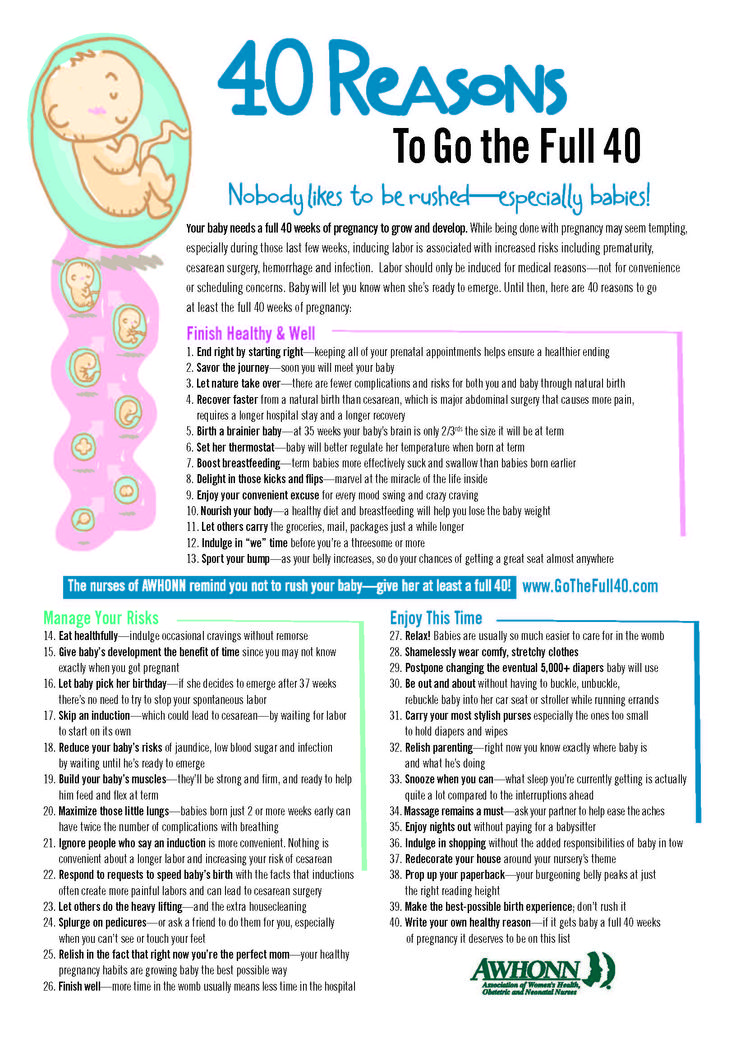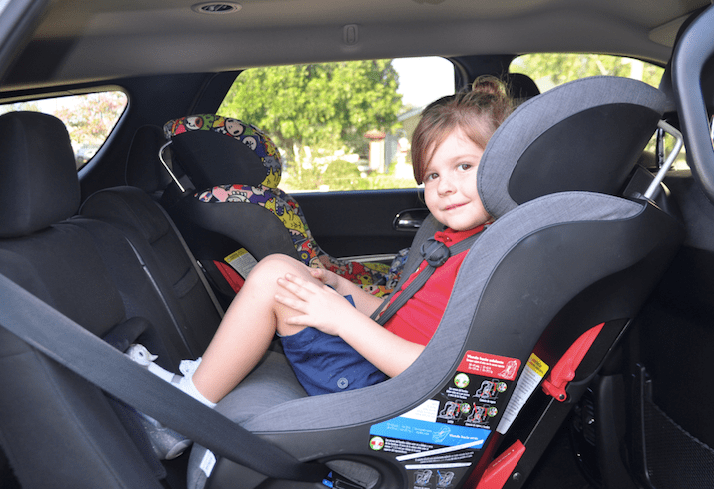Ways to help baby constipation
Baby constipation: Top 7 home remedies
Babies often go a long time between bowel movements. Most of the time, it is normal for a baby to go days or even more than a week without a bowel movement. However, a baby may sometimes be constipated and need a little help.
If a baby is constipated, a pediatrician may recommend using home remedies as a first-line treatment for baby constipation.
Home remedies for constipation in a baby include:
1. Exercise
Moving a baby’s legs can help relieve constipation.
As with adults, exercise and movement tend to stimulate a baby’s bowels.
However, as babies may not be walking or even crawling yet, a parent or caregiver may want to help them exercise to relieve constipation.
The parent or caregiver can gently move the baby’s legs while they are lying on their back to mimic the motion of riding a bicycle. Doing this may help the bowels function and relieve constipation.
2. A warm bath
Giving a baby a warm bath can relax their abdominal muscles and help them stop straining. It can also relieve some of the discomfort relating to constipation.
3. Dietary changes
Certain dietary changes may help constipation, but these will vary depending on the baby’s age and diet.
While breastfeeding a baby, a woman could eliminate certain foods, such as dairy, from her diet. It may take some trial and error to identify the dietary changes that help, and it is quite possible that changes in the diet will have no effect on the baby’s constipation.
For formula-fed babies, a parent or caregiver may want to try a different kind of formula. It is best not to switch to a gentle or dairy-free formula without consulting a pediatrician first. If one change does not make a difference, continuing to try different formulas is unlikely to help.
If an infant is eating solid foods, parents or caregivers should look to introduce foods that are good sources of fiber.
Many fruits and vegetables can help stimulate the bowels because of their higher fiber content.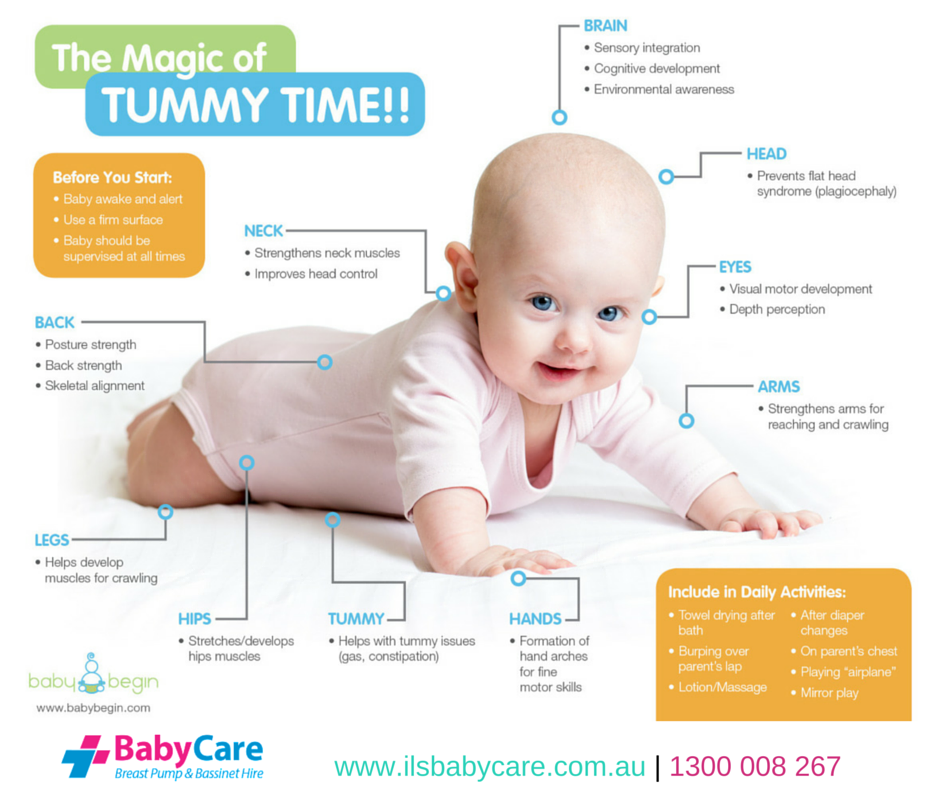 Good food choices for babies with constipation include:
Good food choices for babies with constipation include:
- skinless apples
- broccoli
- whole grains, such as oatmeal or whole-grain bread or pasta
- peaches
- pears
- plums
4. Hydration
Young infants do not typically need supplemental liquids as they get their hydration from breast milk or formula.
However, babies that are constipated may benefit from a small amount of extra liquid.
Pediatricians sometimes recommend adding a small amount of water or, occasionally, fruit juice, to the baby’s diet when they are over 2–4 months old and are constipated.
5. Massage
There are several ways to massage a baby’s stomach to relieve constipation. These include:
- Using the fingertip to make circular motions on the stomach in a clockwise pattern.
- Walking the fingers around the naval in a clockwise pattern.
- Holding the baby’s knees and feet together and gently pushing the feet toward the belly.
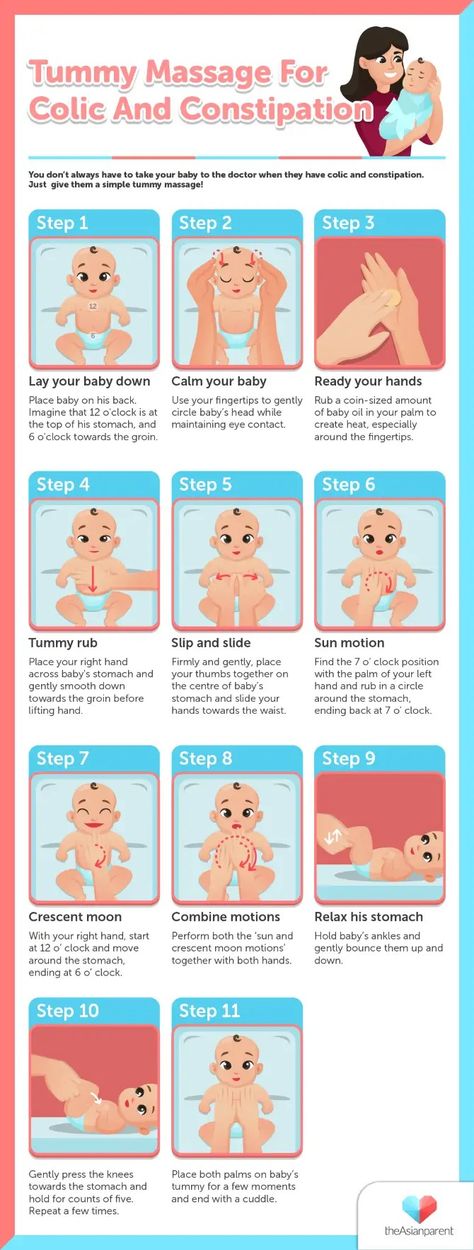
- Stroking from the rib cage down past the belly button with the edge of a finger.
6. Fruit juice
A small amount of pure apple juice can help soften stool.
After a baby reaches 2–4 months of age, they can have a small amount of fruit juice, such as 100-percent prune or apple juice. This juice may help treat constipation.
Experts may recommend starting with about 2–4 ounces of fruit juice. The sugar in the juice is hard to digest. As a result, more liquid enters the intestines, which helps soften and break up the stool.
However, a parent or caregiver should not give fruit juice to a baby for the first time without consulting their pediatrician.
7. Taking a rectal temperature
When a baby is constipated, taking the baby’s rectal temperature with a clean, lubricated thermometer may help them pass stool.
It is important not to use this method very often, as it can make constipation worse. The baby may start not wanting to pass a bowel movement without help, or they may begin to associate having a bowel movement with discomfort, leading them to fuss or cry more during the process.
Anyone who feels as though they often need to use this method to help the baby have a bowel movement should talk to the baby’s doctor.
As infants may go for extended periods without a bowel movement, it can be hard to tell if they are constipated. Signs that indicate constipation in a baby include:
- infrequent stools that are not soft in consistency
- clay-like stool consistency
- hard pellets of stool
- long periods of straining or crying while trying to have a bowel movement
- streaks of red blood in the stool
- lack of appetite
- a hard belly
Signs of constipation in babies vary depending on their age and diet. A normal bowel movement before a baby begins eating solid food should be very soft, almost like the consistency of peanut butter or even looser.
Hard baby stool prior to solid food is the most obvious indication of constipation in babies.
At first, breastfed babies may pass stool often since breast milk is easy to digest.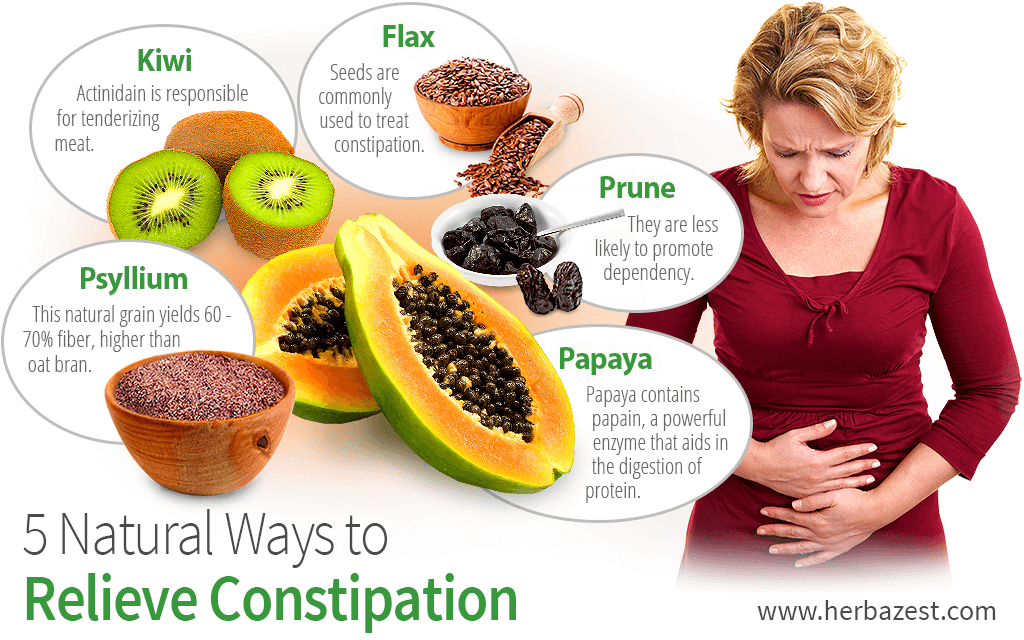 However, once a baby is between 3 and 6 weeks old, they may only pass a large, soft stool once a week and sometimes even less.
However, once a baby is between 3 and 6 weeks old, they may only pass a large, soft stool once a week and sometimes even less.
Formula-fed babies tend to pass stool more frequently than breastfed babies. Most formula-fed babies will have a bowel movement at least once a day or every other day. However, some formula-fed babies may go longer between bowel movements without being constipated.
Once a parent introduces solid food to a baby’s diet, a baby may be more likely to experience constipation. A baby may also be more likely to become constipated if a parent or caregiver introduces cow’s milk (other than formula) to their diet.
Share on PinterestA doctor should assess a baby with ongoing constipation.
It is advisable to call a pediatrician if a baby has not passed a stool after a day or two and there are other signs present, such as:
- blood in the stool
- the baby seems to be irritable
- the baby appears to have abdominal pain
- there is no improvement in the baby’s constipation after taking steps to treat it
Treatment typically starts with home remedies.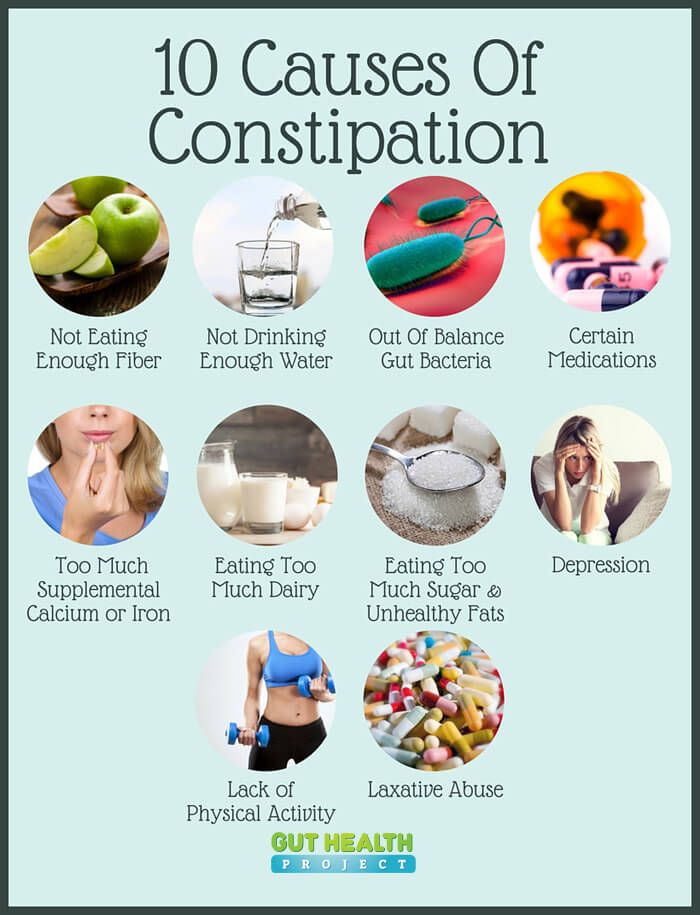 If home remedies do not work, a doctor may examine the baby and, in rare cases, prescribe medications, such as:
If home remedies do not work, a doctor may examine the baby and, in rare cases, prescribe medications, such as:
- laxatives
- enemas
- suppositories
People should never give these medications to a baby unless a doctor prescribes them.
Constipation can lead to discomfort and irritability in a baby. People can try several at-home methods to help alleviate constipation.
If symptoms do not improve, it is best to speak to the infant’s pediatrician for additional strategies.
Read the article in Spanish.
Symptoms, Treatment and When to Call a Doctor
Nationwide Children’s Hospital
Constipation (con-sta-PA-shun) in infants can worry parents. Most of the time, your baby is not really constipated. They may not have developed a routine for pooping yet. Some babies do not develop a bowel movement (BM) pattern for a while.
An infant’s BM pattern can change if their diet changes, like switching from breastmilk to formula, starting solid foods, or drinking less formula than usual. If your baby’s stool (poop) is not soft or easily passed, then they may be constipated.
In rare cases, constipation may be caused by a lack of nerves going to the intestines or by a problem with the way the intestine formed at birth. Your baby can be tested for these conditions if your health care provider feels it is needed.
Signs of Constipation
- less stools than their usual pattern
- straining more than normal to have a bowel movement
- a change in how the stool looks from soft and mushy to:
- small, hard pebbles, or like a large, round golf ball
- loose and watery
- abdomen (belly) bloated or swollen with gas
- painful cramps
Treatment
- If your baby is not eating baby food yet, you may give 1 to 2 ounces of 100% fruit juice (pear, prune, cherry, or apple) once a day.
 Stop the juice if their stools become too loose.
Stop the juice if their stools become too loose. - If they are old enough to eat baby foods, feed them pureed pears, peaches, or prunes instead of giving them juice.
- If your baby eats cereal, it may help to give oatmeal, wheat, or barley cereal. Rice cereal can cause constipation in some children.
- Sometimes giving your baby a warm bath to relax them or exercising their legs, like riding a bicycle, will help stimulate the bowels to move (Picture 1).
- If it has been a few days since your baby has pooped and the juice or pureed food has not worked, then you can try a glycerin suppository. Place your baby on their back. Gently push the suppository into their anus (bottom). Suppositories are meant for occasional use.
- Contact your baby’s health care provider before giving them laxatives, baby mineral oil, or enemas to treat constipation.
Medical Therapy
Your child’s health care provider may order the following treatments:
- Give your child medication.

- Check your child’s temperature using a digital, rectal thermometer. Put a small amount of petroleum jelly (Vaseline®) on its tip before inserting into the rectum. Taking a rectal temperature may stimulate the baby to pass stool.
When to Call the Health Care Provider
Call the health care provider if any of the following occurs:
- Your baby is irritable and seems to be having stomach pain. Infants will pull their legs up to their stomach and cry when they are in pain.
- Your baby has constipation and develops vomiting, and their belly looks like it is bloated or filled with gas.
- You see blood in their stool.
- Their constipation does not get better with treatment.
If you have any questions or concerns, call your baby’s health care provider.
Constipation: Infant (PDF), Spanish (PDF), Somali (PDF), Arabic (PDF), Nepali (PDF)
HH-I-14 ©Copyright 1984, Revised 2022, Nationwide Children’s Hospital
You Might Also Be Interested In
Blog
Pelvic Floor Physical Therapy: How It Can Help
Podcast
PediaCast 503 Your Childs Stomach Part 1
Blog
Senna-Based Laxatives for Kids’ Constipation: Are They Safe?
How to help a child with constipation? – health articles
06/16/2021
Contents
- Causes of constipation in children
- Symptoms of constipation
- Diet
- Gymnastics
- Benefits of contacting MEDSI
Constipation in a child can occur at various stages of growth and development.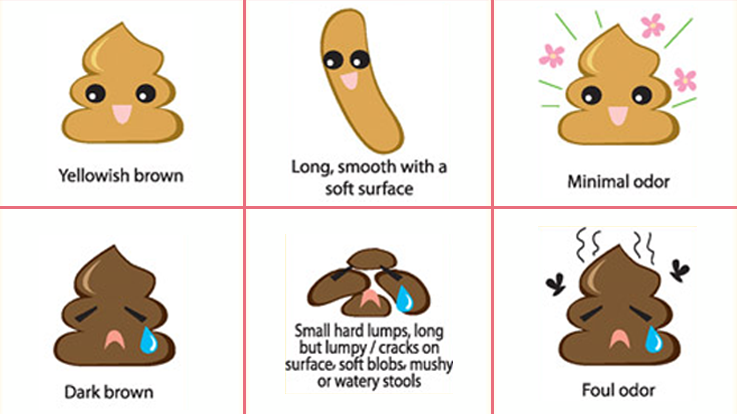 According to statistics, every fifth baby suffers from problems with stool. In this case, violations can occur already in infancy. With the start of complementary foods, the stool usually improves, which is associated with the introduction of fiber into the diet and an increase in physical activity. After a year, the number of children suffering from constipation is growing again. This is already due to the transition to solid food, the rejection of breastfeeding and the reduction in liquid in the diet.
According to statistics, every fifth baby suffers from problems with stool. In this case, violations can occur already in infancy. With the start of complementary foods, the stool usually improves, which is associated with the introduction of fiber into the diet and an increase in physical activity. After a year, the number of children suffering from constipation is growing again. This is already due to the transition to solid food, the rejection of breastfeeding and the reduction in liquid in the diet.
It is dangerous to neglect constipation!
In fact, their consequences are quite dangerous and can cause:
- baby stress
- rectal deformities
- anal fissures
- general organism intoxication
What to do if the child has constipation?
- Find out the cause of the pathological condition together with the doctor
- Diet
- Pay attention to moderate physical activity
Important! It is forbidden to self-medicate.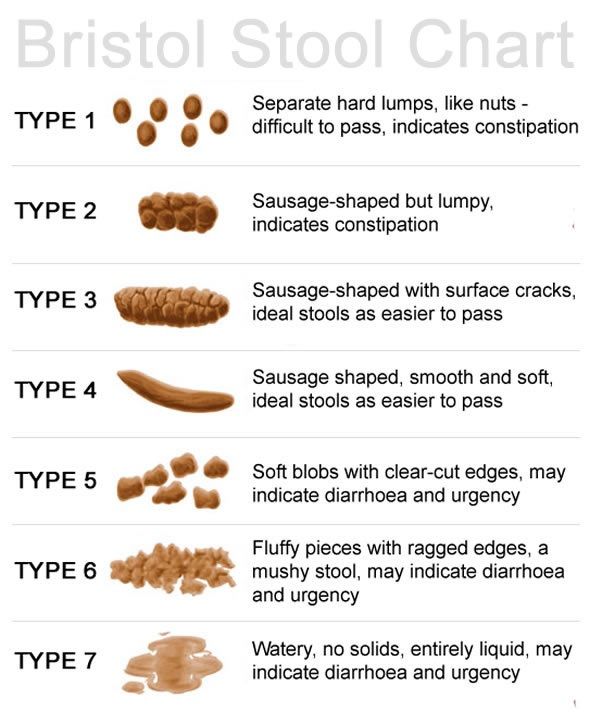 Laxative suppositories and other means should not be given, as well as cleansing enemas.
Laxative suppositories and other means should not be given, as well as cleansing enemas.
It is forbidden to self-medicate. Laxative suppositories and other means should not be given, as well as cleansing enemas.
Causes of constipation in children
The main factors stimulating stool disorders in children include:
- Insufficient fluid intake
- Meals with little or no fiber
- Lack of physical activity
Symptoms of constipation
A pathological condition can be suspected by the following signs:
- the presence of blood (scarlet, fresh) in the stool during the act of defecation and after it in the form of blots (traces) on toilet paper
- rare visits to the toilet for the purpose of defecation (2 or less times a week)
- large large compartments
- the need for strong straining during defecation
- pain in the anus and abdomen
Diet
What can be given to a child for constipation?
This question interests many parents.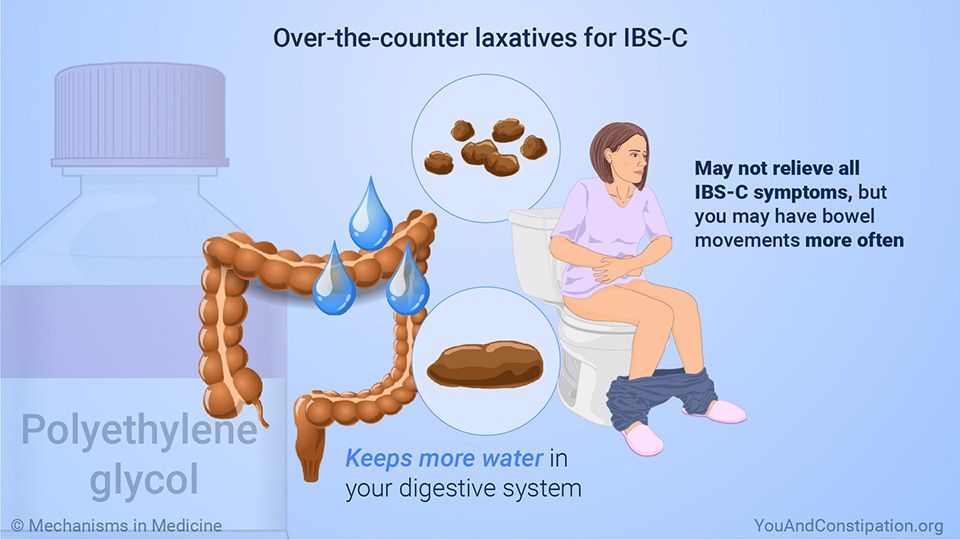 The fight against the problem should begin not with taking medications, but with changing the diet.
The fight against the problem should begin not with taking medications, but with changing the diet.
Necessary:
- Increase fluid intake
- Establish fractional nutrition
- Add fiber-rich foods to the diet
You should teach your child to drink plain clean water. For babies over the age of 3, 2-3 glasses of water a day are usually sufficient. Avoid sugary carbonated drinks, coffee and tea. This is due to the fact that they have a pronounced diuretic effect and stimulate constipation and dehydration.
Especially useful is the cool water that children drink in the morning on an empty stomach. Gradually, the temperature of the liquid can be reduced. The following drinks also have a laxative effect:
- beet juice
- fermented milk (kefir, fermented baked milk, etc.)
- chamomile decoctions
- dill tea
Important! They should be introduced into the diet gradually, starting with a small amount.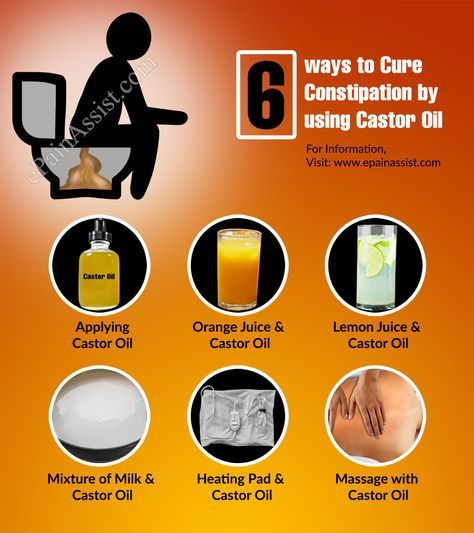 Otherwise, you can provoke a breakdown in digestion.
Otherwise, you can provoke a breakdown in digestion.
You should teach your child to drink plain clean water. For babies over the age of 3, 2-3 glasses of water a day are usually sufficient.
The treatment of constipation in children also implies the introduction of laxative products into the diet, which include:
- legumes
- nuts
- prunes and dried apricots
- plum
- beets
- dates
They are also included in the diet gradually and under the supervision of a doctor. Cereal porridges can be useful: oatmeal, buckwheat, wheat, pearl barley. It is advisable to refuse rice, pears, sweets, muffins, animal fats, flour products. They have a fixing effect.
What else to feed the child so that there is no constipation?
The answer to this question should be given by the pediatrician.
Gymnastics
For the prevention of a pathological condition, walking and running, swimming, exercises to strengthen the abdominal press, squats, bends are useful.
It is believed that mobile, active children are less likely to suffer from constipation. For the prevention of a pathological condition, walking and running, swimming, exercises to strengthen the abdominal press, squats, bends are useful.
If the child is already suffering from stool problems, it is recommended to start the day with simple morning exercises. Massage may also be helpful.
It is important to pay attention to the general change in the behavior of the baby.
The child should be taught to go to the toilet at about the same time, encouraged for observing the daily routine (motivate and praise).
It is also important to create a favorable environment in the toilet. Nothing should distract the child from the act of defecation or scare him in the bathroom.
Benefits of contacting MEDSI
- Help from experienced doctors. Pediatric coloproctologists, gastroenterologists and psychologists work with patients.
 They know exactly how to treat constipation in a child in accordance with the reasons that provoked it
They know exactly how to treat constipation in a child in accordance with the reasons that provoked it - Diagnostic options. The clinic can conduct comprehensive examinations. They allow you to identify the causes of the pathology, find out how and what causes constipation in a child, help him as soon as possible
- Comprehensive approach to troubleshooting. Doctors not only recommend diet and gymnastics. If necessary, specialists prescribe laxatives, antispasmodics, as well as agents that stimulate the evacuation of feces (enemas and suppositories). All drugs are selected individually
- Prevention of complications. To prevent the undesirable consequences of constipation, regular examinations by a coloproctologist are mandatory
- Comfort of visiting clinics. We provide timely consultations without queues at a convenient time for patients
To make an appointment, just call 8 (495) 7-800-500. Our specialist will answer all questions and suggest the best time to visit a doctor.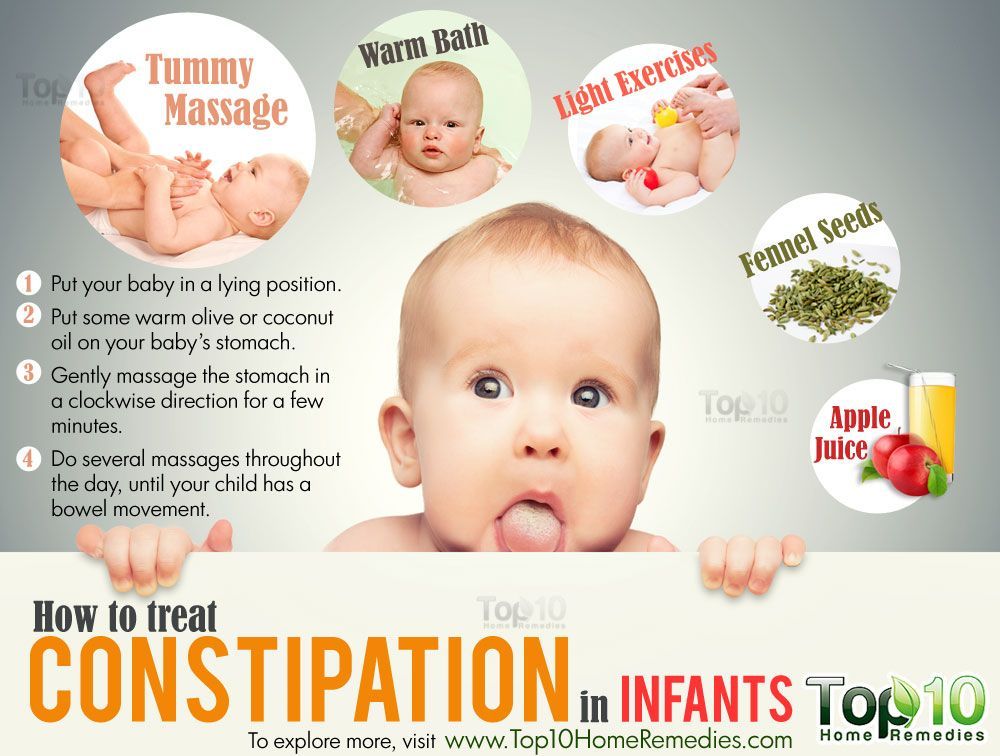 Recording is also possible through the SmartMed application.
Recording is also possible through the SmartMed application.
Do not delay treatment, see a doctor right now:
- Pediatric gastroenterologist appointment
Constipation in a child: what to do?
Constipation disrupts the functioning of the gastrointestinal tract. The main manifestation of constipation is a rare stool, difficulty in emptying the intestinal tract. If emptying occurs every three days, but there is no swelling and discomfort, and the feces have a normal consistency, this is not considered constipation.
If your child is constipated, a specialist should be consulted. Initially, you should seek help from a gastroenterologist. The First Children's Medical Center employs the best pediatric gastroenterologists in Saratov: here you can get qualified medical care!
Symptoms of constipation
The main symptoms of constipation include:
- infrequent bowel movements;
- if the child pushes hard trying to go to the toilet;
- if there is pain during defecation;
- stools look like balls.
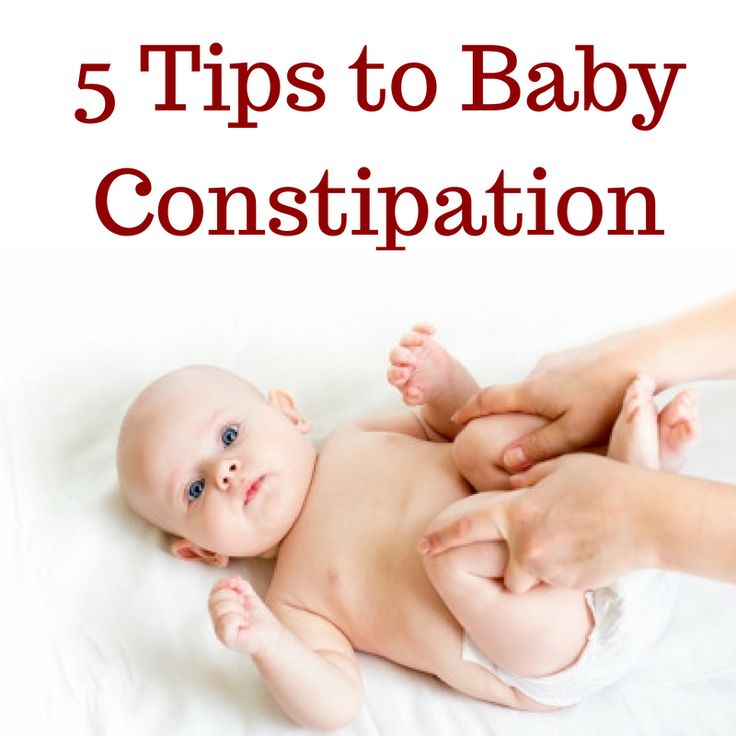
When the baby is breastfed, he can empty himself up to seven times a day, after each meal. During the first week, the frequency of emptying is three times a day.
When the baby is one month old, the chair will be daily. At two months of age and when complementary foods begin, stools can be once every two days. If the baby has a soft stool, he feels good, but at the same time he defecates once every few days, this is the norm.
Signs of constipation include: discomfort during bowel movements, moodiness, very hard stools. If this situation persists, you should contact your pediatrician.
It is important to adjust the feeding regimen. Do not overfeed the child, do not transfer to artificial feeding if the mother has little milk. The first step is to try to fix the situation. A nursing mother should drink more fluids, stop eating foods that cause flatulence, reduce intestinal motility. Only in extreme cases should be transferred to artificial mixtures.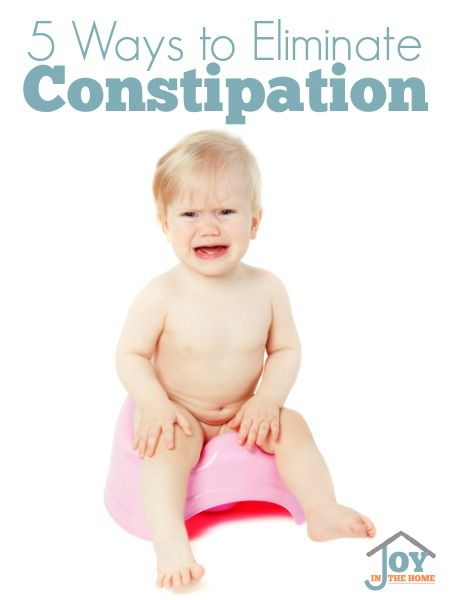
If the baby is formula-fed, he should empty himself once a day. The main mistake in this case is that parents often change mixtures, try others. Mixtures should be adapted, sour-milk, which contain probiotics and prebiotics. It is also necessary to strictly follow the instructions, properly dilute the mixture, taking into account all proportions. The introduction of complementary foods should be on time. The diet should contain foods that contain a large amount of fiber.
After the introduction of complementary foods, the stool becomes formed, hard, less frequent. Until the age of three, bowel movements should be daily. After three years, the frequency of defecation should be at least three times a week.
Why constipation occurs
There are two types of constipation - organic and functional. The causes of organic constipation are:
- Hirschsprung's disease;
- anomalies in the development of the gastrointestinal tract;
- pathology of the endocrine system;
- violations of metabolic processes.
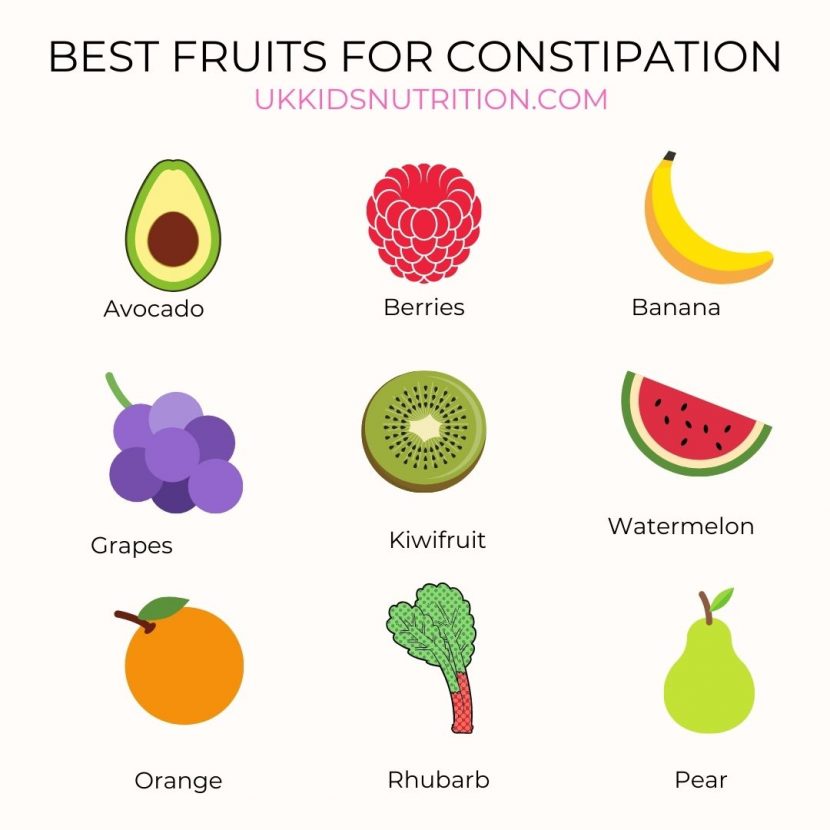
In a newborn child, this symptom may indicate a narrowing, lengthening or expansion of the intestinal tract.
The causes of functional constipation include:
- psychological problems, such as being in an unfamiliar environment;
- lactose deficiency;
- lack of fluid in the body;
- errors in the diet;
- negative reaction of the body to taking antibacterial drugs, drugs for the treatment of anemia, anticonvulsants;
- congestion of bile in the gallbladder and its ducts;
- Intestinal worms.
In newborns, the nervous system is immature, it is just being formed. Therefore, children are unable to control the movements of their muscles during bowel movements. You can help them by gently bending the legs, pressing them to the tummy. With these movements, the pelvic muscles relax, the bowel is released much faster.
How the therapy works
The treatment of constipation requires a holistic approach.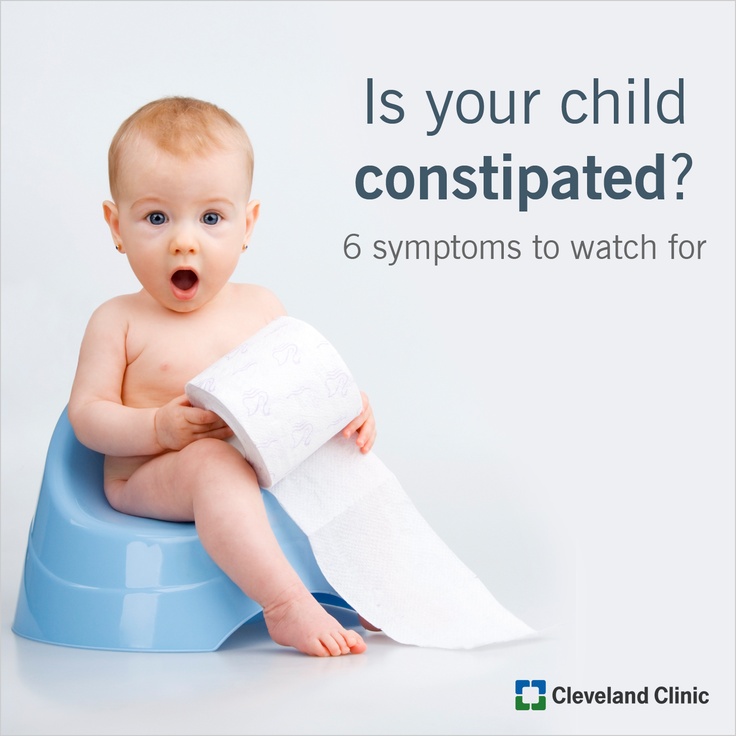 Treatment is prescribed in each case individually, depending on the cause of constipation.
Treatment is prescribed in each case individually, depending on the cause of constipation.
To ensure the normal functioning of all organs, it is necessary to adjust the stool in children. You will need to adjust your diet and lifestyle, do not abuse laxatives, as they only help temporarily.
The main principles of therapy include:
- Diet correction. Requires elimination of foods that can cause constipation. Among them are fermented milk products, rice, muffins, bakery products, pasta. The menu is recommended to include vegetable fiber, which is found in fresh fruits and vegetables. You should also abandon fast carbohydrates - flour products, sweets. You need to add to the menu more foods that contain potassium, for example, figs, dried apricots, prunes.
- Observe the drinking regimen. It is important to drink clean drinking water. During the day, the child should drink at least 40 milliliters of water per kilogram of his weight.
- According to the doctor's prescription, medicines, homeopathic remedies should be given to the baby.
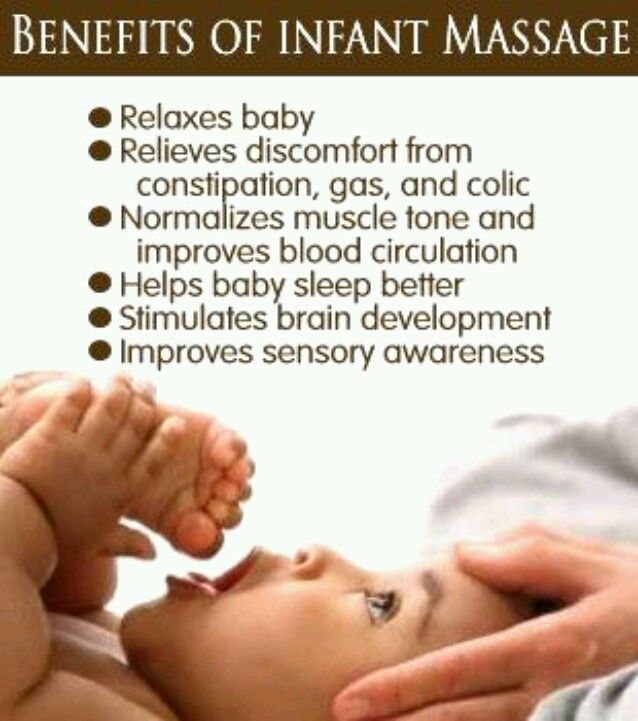 These include drugs for the outflow of bile, drugs that restore the intestinal microflora. You can use antihelminthics, laxatives, drugs with lactulose in the composition. Your doctor may also prescribe medications that contain polyethylene glycol. They retain moisture in the intestines, thin the stool.
These include drugs for the outflow of bile, drugs that restore the intestinal microflora. You can use antihelminthics, laxatives, drugs with lactulose in the composition. Your doctor may also prescribe medications that contain polyethylene glycol. They retain moisture in the intestines, thin the stool. - In case of prolonged constipation, the child can be given a glycerine suppository, a microclyster as a stimulant.
- Undergo physiotherapeutic procedures prescribed by the doctor, massage, do therapeutic exercises.
- Provide a calm environment, help the baby psychologically so that he is not afraid to empty his intestines. You can read fairy tales, play with your child.
- Train the intestines, after eating, put the child on the potty for a few minutes.
First you need to get rid of constipation and only then potty training. If constipation is not treated in a timely manner, this will entail unpleasant consequences for the health of the child.




